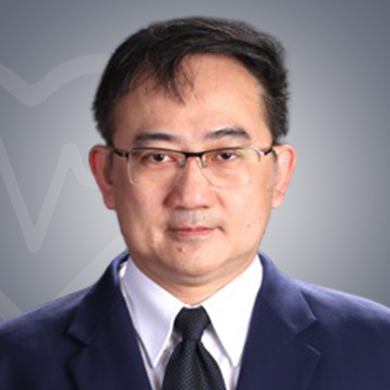
31 Years of experience
Speaks: English
Dr. Nanthasak Tisavipat currently works in BANGKOK HOSPITAL, THAILAND. He is specialized in neurological surgery. Neurological surgery is a discipline of medicine and that specialty of surgery that provides operative and nonoperative methods of disorders of the central, peripheral and autonomic nervous system, which includes their supporting structures and vascular supply; the evaluation and treatment of pathological processes which modify the function or activity of the nervous system, including the hypophysis; and the operative and nonoperative management of pain. As such, neurological surgery encompasses the treatment of adult and pediatric patients with disorders of the nervous system.
2003: Family Medicine, Thai Medical Council, THAILAND
1989: Neurological Surgery, Siriraj Hospital, Mahidol University, Thai Medical Council, THAILAND
1984: Doctor of Medicine, Ramathibodi Hospital, THAILAND
2017: AANS Annual Scientific Meeting, American Association of Neurological Surgeons
2017: The Spetzler Symposium: A Scientific Tribute and Global Celebration, American Association of Neurological Surgeons
2016: Emergency Management in Traumatic Brain Injury, Bangkok Dusit Medical Services
Neurosurgeons are trained to treat people suffering aneurysms, blocked arteries, trauma to the brain and spine, birth defects, chronic low-back pain, brain and spinal cord cancer, and peripheral nerve problems. Neurosurgeons also do surgeries for carpal tunnel syndrome, spinal surgery, and brain tumor removal surgery. Here is a list of some of the conditions Dr. Nanthasak Tisavipat treats:
In case your body shows any of the below-given symptoms, go and see a neurosurgeon who will help diagnose the underlying conditions. Some conditions may be mild while others may require immediate attention. Proper diagnosis on time can prevent serious conditions.
The above symptoms appear mainly due to conditions that can adversely affect the nervous system. The symptoms can vary from person to person because the nervous system regulates different body functions. Symptoms can include all forms of pain.
The working hour of doctor Nanthasak Tisavipat is 11 am to 5 pm from Monday to Saturday. The doctor has an off on Sunday. Call the doctor or his attendant to confirm his/her availability because the doctor may not be available due to some personal reasons or any emergencies.
With several years of experience and deep knowledge, Dr Nanthasak Tisavipat has successfully performed a wide range of surgeries. Some of the popular procedures performed by the specialists include::
Dr. Nanthasak Tisavipat specializes in the surgical treatment of neurological disorders and has operated on a large number of diseases. The neurosurgeon has developed an excellent team of physicians to handle even the most complex cases with minimal invasion and the highest safety. The team includes neurosurgeons and neuroradiologists who are regional experts in the surgical treatment of neurological diseases.

Share Your Experience about Dr. Nanthasak Tisavipat

Neurosurgeons, also known as brain surgeons, are doctors who specialize in the surgical treatment of conditions that affect the nervous system, brain, and spine. Neurosurgeons first have the training which makes them eligible to practise as a doctor. After this, they complete specialist training in neurosurgery. Neurosurgeons mostly see patients in their own clinics and public and private hospitals. Sometimes, they have to work with other specialists and medical experts to seek their opinion on diagnosis and surgery techniques. They also evaluate the diagnostic tests to know the exact underlying conditions and accordingly proceed with the treatment.
Diagnosis tests act as an important tool to find out the condition(s) a patient is suffering from. So, a neurosurgeon will ask you to get a few tests done so that they get to know the cause of the symptoms which further helps in finding the condition the patient is suffering from. Based on the diagnosis, the doctor can start appropriate treatment. A neurological examination is the assessment of motor responses and sensory neuron and includes the following:
Below are some tests that a neurosurgeon may recommend for the diagnosis of the conditions of the nervous system.:
Here are some of the top signs that suggest you should consult a neurosurgeon:
The nervous system is a complex part of the body, so neurosurgeons perform complicated surgeries. They address the issues of the entire nervous system and offer treatment of every part of the body affected by the nerves. They also help in the diagnosis of symptoms of the nervous system and come up with minimally invasive treatment plans.